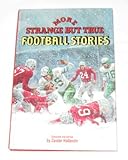Cuba's Controversial Leader Fidel Castro Leaves Behind A Mixed Legacy
Language
Reading Level
Listen to Article

On Sunday, December 4, Fidel Castro, Cuba’s former President and leader of the Communist revolution, will be laid to rest at the Santa Ifigenia cemetery in Santiago de Cuba, the island's second-largest city. Fidel, who passed away on Friday, November 25 at age 90, ruled the country with an iron fist for 47 years (1959-2006) and was one of the most controversial leaders of our time. Supporters maintain that Fidel was a champion of socialism and think his revolutionary regime protected Cuba from American imperialism. Critics, which include his daughter Alina Fernández, considered him a dictator who allowed human rights abuses and impoverished the country’s economy.
Fidel came to power in 1959 when his revolutionary group, the “26th of July Movement," ousted the US-backed dictator, Fulgencio Batista. However, the 33-year-old, who had obtained the support of the Cubans by promising to restore the 1940 constitution and reinstate civil and political liberties, did not live up to his word. Over the next two years, he nationalized private commerce and industry. He also broke up large landholdings and redistributed the land among farmers, cooperatives, and the state. The radical policies put him at odds with the US government, as well as with thousands of Cubans, many of who fled to Florida. In 1960, the US imposed a trade embargo on Cuba, and by January 1961, all diplomatic relations with the island country had been severed.

Things came to a head in April 1961, when a CIA-backed invasion by Cuban exiles to try to overthrow the dictator failed. Shortly after, Fidel declared Cuba to be a socialist country and aligned himself with America’s arch enemy, the Soviet Union. To make matters worse, in 1962, in an attempt to boost their power, the Soviets armed the small island with nuclear missiles. After a 13-day standoff between the two superpowers, the Cuban Missile Crises, as it is called, was finally resolved. The Soviets agreed to dismantle the missiles, while the US publicly promised never to invade Cuba without provocation.
For the next 47 years, Fidel’s one-party government controlled all aspects of Cuba’s political, economic, and cultural life, and ruthlessly suppressed any political dissent or opposition. While many middle and upper-class Cubans condemned Fidel’s policies, those on the lower end of the economic spectrum were content with the leadership. That’s because, under Fidel’s reign, housing, education, and health services were free. Additionally, every Cuban was guaranteed a job. The dictator also dispatched doctors and teachers to impoverished post-colonial countries and sent troops to fight the apartheid governments of Angola and Namibia. It is therefore not surprising that many African leaders also considered Fidel a hero.

In July 2006, Fidel, who was recovering from surgery from a severe intestinal illness, named his brother Raúl the country’s provisional leader. Two years later, the dictator announced that he would not return and Cuba's National Assembly appointed Raúl president.
Though the relationship between the US and Cuba remained much the same under Raúl for many years, things are finally starting to change. In 2015, a year after the two countries announced an attempt to improve relations, the Cuban government established an embassy in Washington D.C, while the US did the same in Havana. Earlier this year, President Obama became the first sitting American president to visit the country in nearly 90 years. Travel restrictions to the country have also been eased, as have the rules of trade. Whether things continue to improve now that Fidel, who was staunchly against mending the US-Cuba relationship, is gone remains to be seen.
Meanwhile, Cubans and people worldwide are trying to determine the legacy left behind by this polarizing leader who, as Jorge Dominguez, an expert on Cuba at Harvard University, says "was well aware that some thought he was a hero while others thought he was a demon."
Resources: abc.com,pbs.org,cnn.com,wikipedia.org
Cite Article
Learn Keywords in this Article
96 Comments
- jkbearabout 4 yearscool
- NO!over 5 yearsgood to know
- harry potteralmost 6 yearscool
- natemasteralmost 7 yearsthis is great for my class, also good to kmow
- Havannaabout 7 yearscool
- dankalmost 8 yearsA communist is a communist. He ruined the Cuban economy, oppressed his island's people, and his 'healthcare' and 'education' are pretty much a lie. There's a reason why so many Cubans ran to the US and there's a reason that many of them celebrated when he died.
- Annonymousalmost 8 yearsThat is so sad. I don't watch the news much so this is new to me. :)
- ufo51almost 8 yearsim gonna bet on the guys grave will be haunted
- Uglyabout 8 yearsWow!!!!
- johna Jones about 8 yearsomg



